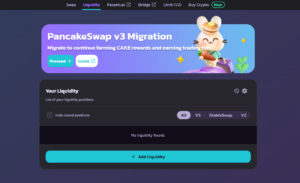
Social media is a powerful tool that can be used to connect people with similar interests, promote events, and share information on breaking news stories. As a private investigator, you may be asked to investigate social media accounts as part of a background check or missing persons case.
Social Media Networks
There are a large number of social media networks. However, the bulk of the population uses just a handful. As a private investigator, any network may contain info relevant to your case. However, if you’re just beginning, you are better off starting with the most popular networks.
- Facebook (2.9 billion users)
- YouTube (2.5 billion users)
- WhatsApp (2 billion users)
- Instagram (1.4 billion users)
- WeChat (1.3 billion users)
- TikTok (1 billion users)
- Twitter (544 million users)
View a more comprehensive list of social media networks.
Social Media Accounts and Profiles
A social media profile is a public page with information about the person, such as their name, age, occupation, location, and interests. Also, it often contains a list of family, friends, and followers. Many different profiles can be created on social media platforms like Facebook and Twitter.
What information is available?
You can gather a lot of information from someone’s social media account. For example, you can find general information such as name, city and state, and where someone works. Also, they can learn about their family, friends, co-workers, and personal interests.
The following is information you can find on a social media profile. Of course, not all profiles will contain all of this information. What is available depends on how much the profile owner chooses to include about themselves.
- First and Last Name, nicknames
- City and State, Country
- Marital status
- Associated persons such as family members, friends, and colleagues
- Current and past employers
- Education details such as high schools, colleges, and universities attended and any diplomas, degrees, and certifications obtained.
- Hometown (where they are from)
Data and Information in Posts, Photos, and Videos
In addition to the data and information available in a person’s social media profile, there is additional information in their posts. Individual posts can be anything from sharing a photo or commenting on another person’s post. Also, posts can reveal personal opinions, conversations between friends, travel plans, and other details.
In addition to posts, photos and videos may reveal additional information. Unfortunately, data isn’t as evident as in written, text-based posts. Instead, the helpful information may be “hidden” within the visual. For example, you may be able to determine where someone is, such as at a bar or local restaurant, by examining the background of their photo. Plus, you may be able to identify friends or family members in particular images posted on their profiles.
Example: Investigating a Facebook Profile
To demonstrate the types of information, you can find in a social media profile. We’ll use Facebook as an example. Follow these steps:
- Visit Facebook.com
- Navigate to anyone’s profile
- On the top profile navigation, click on About

In the About section, you’ll see several different sub-sections, including:

- Overview – This sub-section includes info such as a current and past employer, degrees earned, city and state of residence, hometown, spouse’s name, and personal phone number.
- Work and education – In this sub-section, you’ll see a list of current and former employers, colleges/universities (if attended), and high school names.
- Places lived – In the Places lived section, you’ll see a list of the cities and states of residence. Also, if different, the name of the person’s hometown.
- Contact and basic info – This section contains exactly what you’d expect. It has basic contact information such as phone number, address, and email address. In addition, it includes links to personal websites and links to other social media accounts.
- Family and relationships – This section includes links to other Facebook accounts for family members and spouses.
- Details about you – This page contains basic information such as gender, birth day and year, religious affiliation, and political party. Also, you’ll see other details such as nicknames, favorite quotes, etc.
- Life events – The Life Events section includes a list of notable events such as a marriage, the birth of a child, and the beginning of a new job.
The categories above are the most valuable sections for private investigators. However, more sections may give additional insights into personal interests, affiliations, and more. To see the additional sections, click on More. The drop-down list includes the following:

- Sports
- Music
- Movies
- TV shows
- Books
- Likes
- Events
- Questions
- Reviews given
- Groups
At first glance, these sections may seem unimportant. However, they may reveal connections that could lead to helpful information. For example, the Groups section could lead you to groups the individual participates in. In addition, the person’s posts within that group may reveal even more.
Again, not everyone fills out all of these sections, so the data available will vary by individual. Also, the types of information available in profiles will vary by network.
As a private investigator, a social media profile may be just one piece of the puzzle. Rarely will you find everything you need via social media alone. Instead, combining data and information gathered from multiple sources will likely help you solve your case.
Data and Information in Groups
Individuals often join various interest groups to interact with others with similar interests. Often, individuals will post thoughts and opinions in these groups that they would never consider posting on their profile. Some social media networks will reveal group memberships and affiliations in a member’s profile. If you’re a private investigator, check to see if the individual you are investigating posted messages in any special interest groups.
Leveraging Search Tools
You’ll have to rely on a search if you don’t have a link to the individual’s specific profile on a particular network. Of course, you can use Google to make a general inquiry, but that won’t search within private networks that require a login. You’ll most likely need to rely on the search function within the social network. Before you begin your search, make notes of the most common search criteria, such as:
- First and last name (you can also search by first initial and last name)
- City and state (if you have it, this will help narrow your search)
- Other
OSINT Search Tools
In addition to Google and the network’s search engine, many open-source search tools are available. These OSINT search tools can be helpful tools for private investigators. Usually, they broaden the criteria by which you can search.
Protecting Yourself
Social media has become a vital part of our lives. However, privacy settings have not been able to keep up with the new social media landscape. This leaves us vulnerable to having our information stolen and shared without consent. The following is a list of steps to protect yourself from this vulnerability by adjusting privacy settings on social media accounts.”
Important Reminders
Again, it is essential to note that not everyone has a social media profile. Of those who do, not everyone adds all of their data and information to their profile. Also, it is vital to remain aware that profiles can easily be faked. So, before you go down the long road of building a profile, ensure you have the right person and that the profile is authentic.
Additional Tips for PIs
- Be sure to look at the profiles and posts of family, friends, and colleagues. You may find information on your subject there.
- Complement your search with a public records database tool like BeenVerified.
Questions and Comments
Post a message below if you have questions, comments, or additional ideas about investigating social media accounts.











